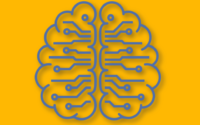
Few Colleges Deploying Edtech Products Consult Scientific, Study Finds, But Other Factors Might Be More Important
One of the central issues pertaining to technology and education today is that few—if any—know whether a new edtech product or service will improve learning outcomes. It might also have unintended consequences. While many researchers have investigated the decision-making process behind edtech implementation at the K-12 level, few have done so in higher ed. Assistant […]
















